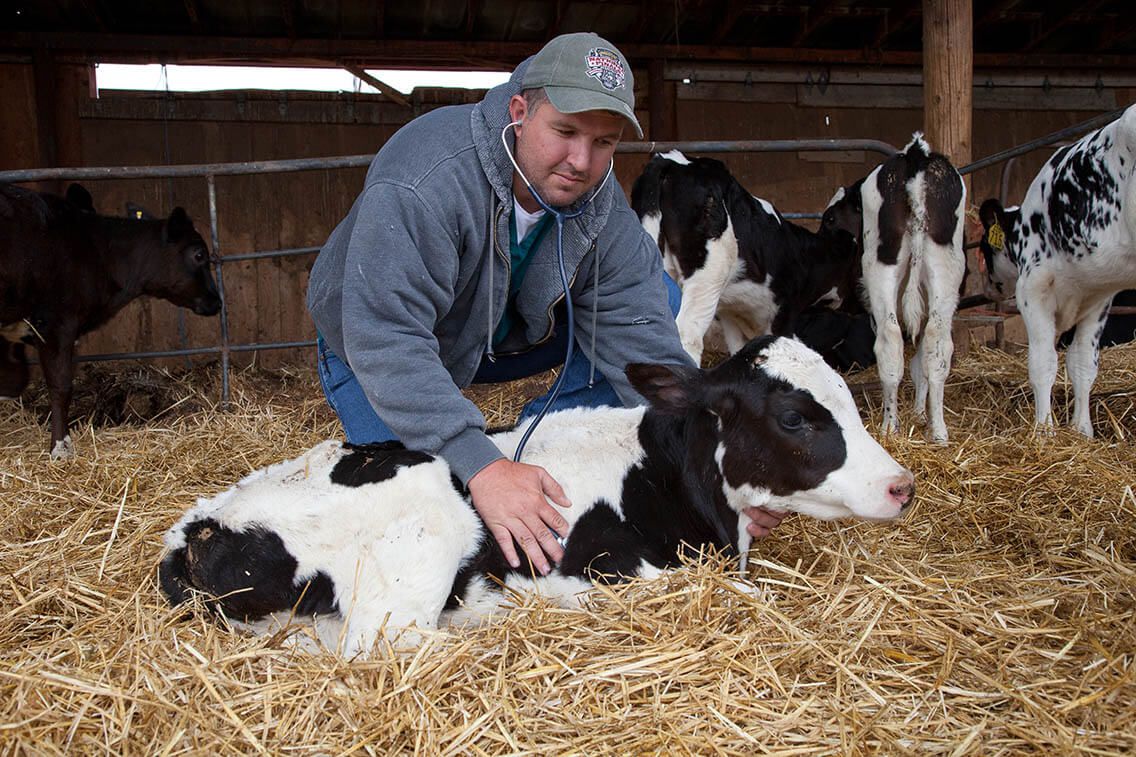Why veterinarians are entering the vaccine debate
Author
Published
6/20/2019
A link between vaccines and autism in humans has been repeatedly disproved, but a trend against vaccination that originated in the United Kingdom and is now trickling into the United States, has some pet owners refusing to vaccinate their pets.
The American Veterinary Medical Association (AVMA) has no statistics showing a growing trend of “anti-vaxxer” pet owners in the U.S., however, according to the AVMA, some veterinarians report having clients who are worried about possible adverse effects of animal vaccinations.
Kerry Rood, an associate professor in Utah State University’s School of Veterinary Medicine, said negative reactions such as hives, body aches and even anaphylactic response from vaccines can happen in animals, but are extremely rare.
“They’re actually easily managed,” Rood said. “We don’t see an autism risk that is alleged on the human side. It has not been reported in the veterinary literature.”
The benefits of vaccinations far outweigh the risks according to Rood. Vaccinating animals stimulates their immune systems to fight off bacteria and viruses that cause disease and sometimes death.
The AVMA recommends specific “core vaccines” based on typical disease risks for pets and livestock, but additional vaccines may be needed due to an animal’s lifestyle, such as exposure to wildlife or travel to other states or countries.
An important aspect to remember, according to Rood, is that veterinarians and pet owners both have the same goal of taking care of animals. He said the way veterinarians approach clients about the topic should be done carefully.

“I would validate the client’s concern that vaccination is not without its risk, however, I believe that the benefit of vaccination does far outweigh the risk,” Rood said. “If there is any vaccine reaction, we can easily manage it with medication that cuts down on that reaction and helps the animal feel better. Some of those can even be an over-the-counter antihistamine for example, or a prescription can help with those rare events where there is a vaccine reaction.”
The same concepts of vaccinating pets also apply to farms and ranches with higher populations of animals according to Rusty Stott, a clinical assistant professor in the Animal, Dairy and Veterinary Sciences Department at USU. He designs the vaccination protocols for the university’s beef and dairy herds, along with the sheep and goat units at USU’s research farms.
For individual animals in a herd of cattle, for example, Stott said vaccinating the mothers can help their calves survive common diseases such as scours in the first few weeks of life. Vaccinating adult cows also helps prevent respiratory disease that can cause abortion of unborn calves.
Cattle are herd animals and stay close together, which increases the risk of spreading disease from animal to animal Stott said. Vaccinating a herd decreases the chances of a virus or bacteria spreading from one cow to another.
Stott said he has been watching this year’s measles outbreak in Washington from a veterinarian’s perspective.
“Thinking of the human population as a herd can be hard for people to do because we think mostly about individual medicine,” Stott said.
A large enough population of unvaccinated people in Washington has become a risk for everyone, according to Stott, just as can happen with unvaccinated animals on a farm or ranch.
Want more news on this topic? Farm Bureau members may subscribe for a free email news service, featuring the farm and rural topics that interest them most!
